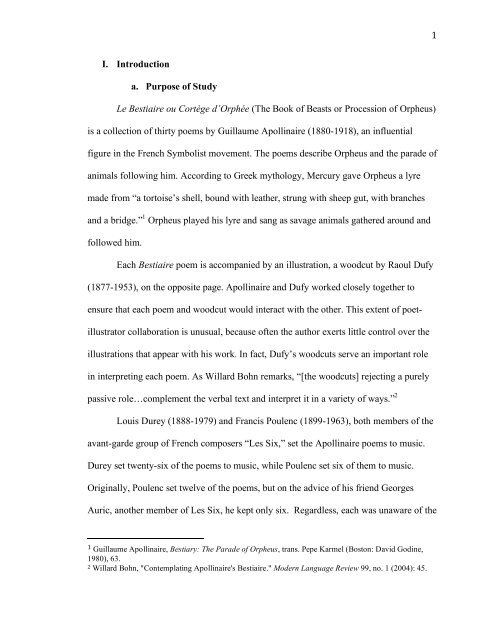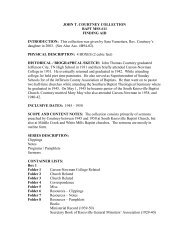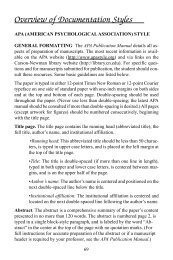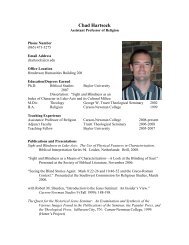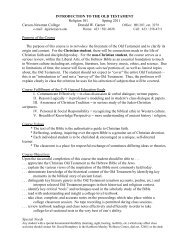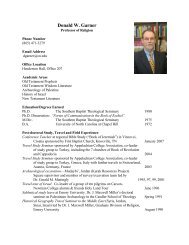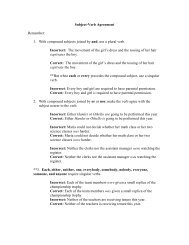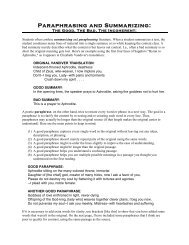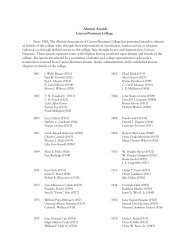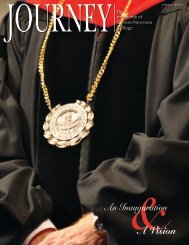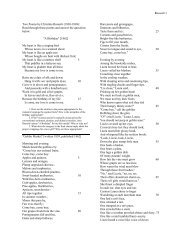a comparative analysis of louis durey and francis poulenc's settings ...
a comparative analysis of louis durey and francis poulenc's settings ...
a comparative analysis of louis durey and francis poulenc's settings ...
You also want an ePaper? Increase the reach of your titles
YUMPU automatically turns print PDFs into web optimized ePapers that Google loves.
1<br />
I. Introduction<br />
a. Purpose <strong>of</strong> Study<br />
Le Bestiaire ou Cortège d’Orphée (The Book <strong>of</strong> Beasts or Procession <strong>of</strong> Orpheus)<br />
is a collection <strong>of</strong> thirty poems by Guillaume Apollinaire (1880-1918), an influential<br />
figure in the French Symbolist movement. The poems describe Orpheus <strong>and</strong> the parade <strong>of</strong><br />
animals following him. According to Greek mythology, Mercury gave Orpheus a lyre<br />
made from “a tortoise’s shell, bound with leather, strung with sheep gut, with branches<br />
<strong>and</strong> a bridge.” 1 Orpheus played his lyre <strong>and</strong> sang as savage animals gathered around <strong>and</strong><br />
followed him.<br />
Each Bestiaire poem is accompanied by an illustration, a woodcut by Raoul Dufy<br />
(1877-1953), on the opposite page. Apollinaire <strong>and</strong> Dufy worked closely together to<br />
ensure that each poem <strong>and</strong> woodcut would interact with the other. This extent <strong>of</strong> poetillustrator<br />
collaboration is unusual, because <strong>of</strong>ten the author exerts little control over the<br />
illustrations that appear with his work. In fact, Dufy’s woodcuts serve an important role<br />
in interpreting each poem. As Willard Bohn remarks, “[the woodcuts] rejecting a purely<br />
passive role…complement the verbal text <strong>and</strong> interpret it in a variety <strong>of</strong> ways.” 2<br />
Louis Durey (1888-1979) <strong>and</strong> Francis Poulenc (1899-1963), both members <strong>of</strong> the<br />
avant-garde group <strong>of</strong> French composers “Les Six,” set the Apollinaire poems to music.<br />
Durey set twenty-six <strong>of</strong> the poems to music, while Poulenc set six <strong>of</strong> them to music.<br />
Originally, Poulenc set twelve <strong>of</strong> the poems, but on the advice <strong>of</strong> his friend Georges<br />
Auric, another member <strong>of</strong> Les Six, he kept only six. Regardless, each was unaware <strong>of</strong> the<br />
<br />
1 Guillaume Apollinaire, Bestiary: The Parade <strong>of</strong> Orpheus, trans. Pepe Karmel (Boston: David Godine,<br />
1980), 63.<br />
2 Willard Bohn, "Contemplating Apollinaire's Bestiaire." Modern Language Review 99, no. 1 (2004): 45.


